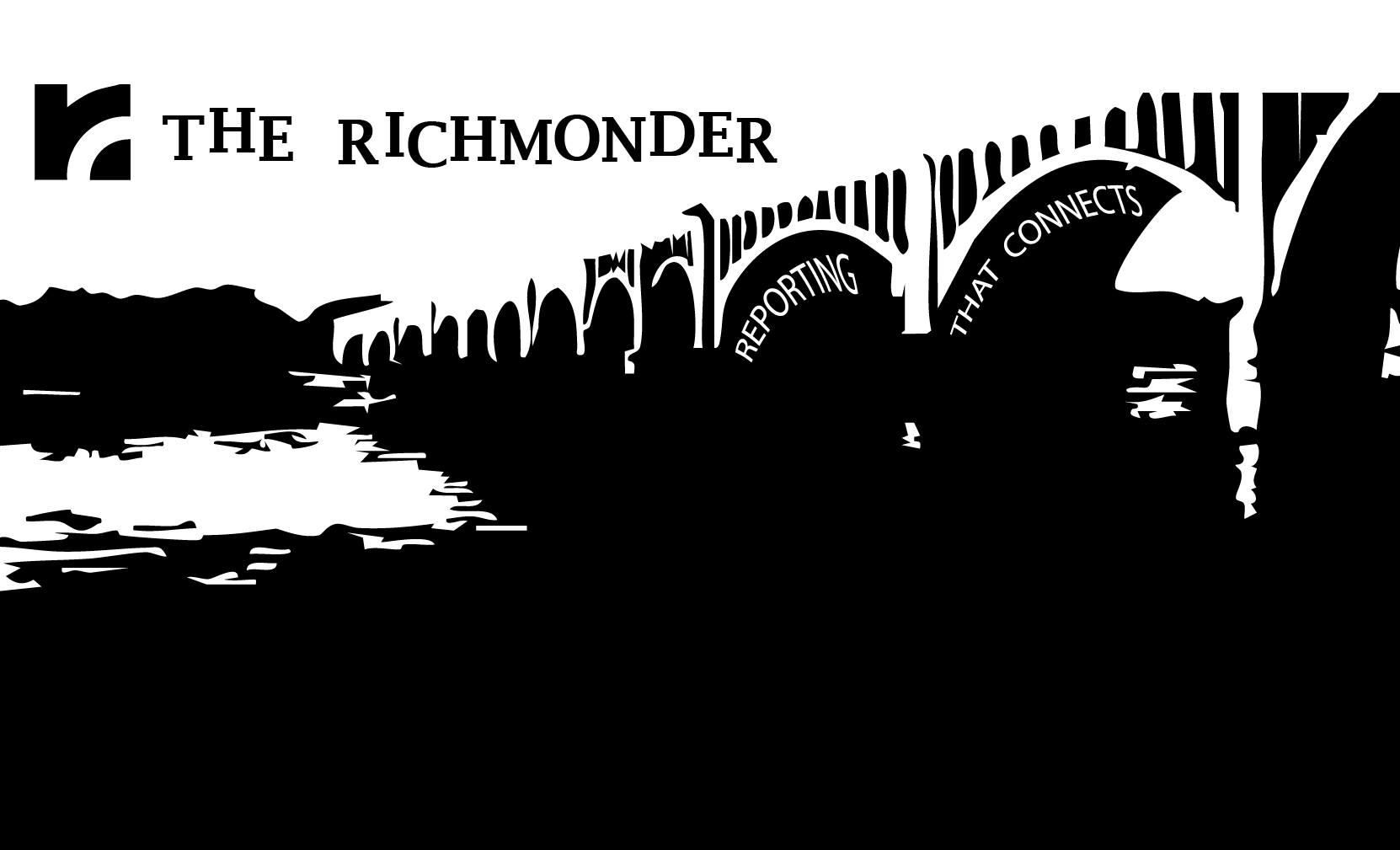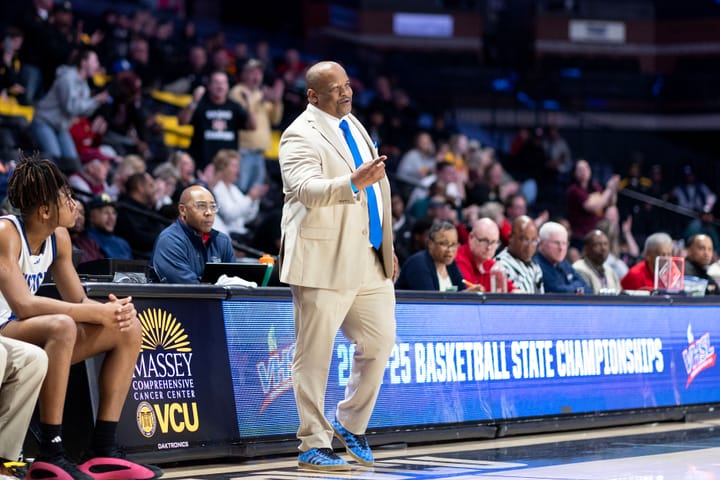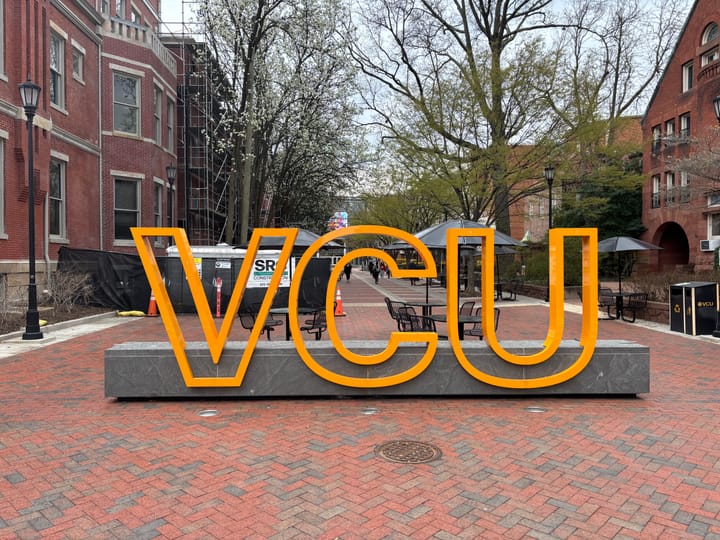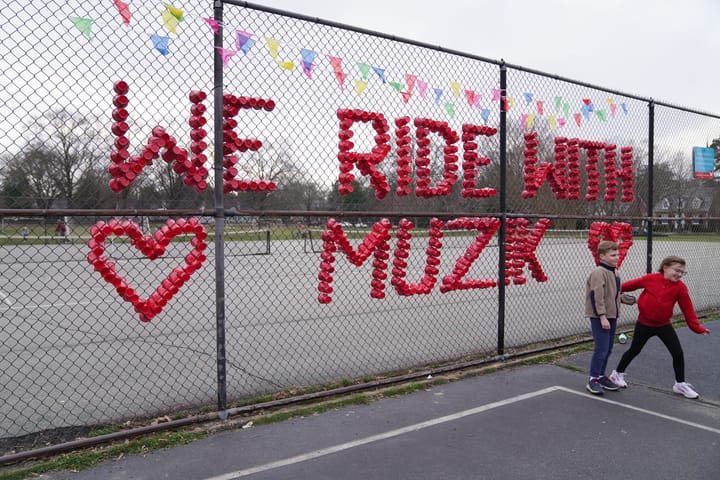Richmond’s trans community embraces an underground literary form: the zine

On an early March morning, Studio Two Three in Manchester is filling up with people young and old exploring screen printing, chatting with local organizations at tables, and checking out the ACLUVA’s new zine; Celebrating Trans Joy: Building Communities.
The zine is a colorful, glossy comic book, a collaboration between trans and nonbinary Virginians who shared stories of experiencing joy with artists who brought their stories to life in unique styles using photos and details from the storytellers.
The Studio Two Three event was one of four organized by the ACLUVA and led by Phuong Tran, who first hatched the idea two years ago with the intention of bringing people together, reclaiming the narrative around trans experiences, and ultimately working to build community around the project.
For Kitt Spata, a featured storyteller and hairdresser who shared the experience of their first gender-affirming haircut, the physical format was powerful, especially as an influencer who is no stranger to the online world.
“I've been sharing my entire transition, but seeing it in this format is so different, and seeing this specific story told is so neat and very rewarding because it is a trans experience story, but it's more so a story of expression and how I use that expression to now help other people find their own expression,” said Spata.
For Spata, it was also vital to note that the zine will be entered into the Library of Virginia archives, meaning that these experiences are officially on-the-record and in their own words, part of Virginia history.
“Zines are a queer history thing now. And have always been, but are more – represented now and like more pointed now, I feel like. And more like no, this is what we do to get messages across to one another without the internet,” they said.
But… what is a zine?
“A zine, in the barest-bone thing, is basically just a self-published pamphlet,” said Mary Ann Mason, an archivist at the Library of Virginia.
Celebrating Trans Joy is a published book made possible by grants and donors, but zines can be anything from small bound books to newspaper-style publications – and often, simply sheets of folded paper, printed or hand-drawn, addressing the plants in a garden or sharing poetry.
“It's not like a package experience that a publisher has curated to be a certain way. It is a very much more authentic way of expressing yourself and what you want people to know,” said Mason.
According to them, the roots of the modern zine started with amateur printers at the turn of the 20th century, when individuals tired of dealing with large print houses and companies took it upon themselves to print and distribute their own work.
“Some of the early influencers in that original press movement are the Black literary writers of the Harlem Renaissance. We see with them what are called little magazines,” said Mason, adding that many writers associated with the Harlem Renaissance started with little magazines, famously Fire!!, a booklet with writing from Langston Hughes and Zora Neale Hurston.
Little magazines were joined by “fan magazines” in the 1930s that followed science fiction radio dramas, with people making their own fan-zines with theories to distribute among friends.
“It's almost like social media today. They created their own little groups and dispersed everything amongst themselves,” said Mason.
In 1930’s Virginia, camps for Civilian Conservation Corps (CCC) were encouraged to print and share their own small papers, including everything from events, sports scores and news to cartoons teasing the bosses.
The anthology of CCC publications can be found on the Library of Virginia website, along with several other digitized collections.
Richmond’s zine scene can be found in person around the city at locations working to curate community space, said Library VA’s Mason, including at Studio Two Three, which is home to the Richmond Independent Zine Library (RIZL).
And for two days each year, Richmond also celebrates zines at the Richmond Zinefest, an annual extravaganza held each fall at the Main St. Public Library that brings local and national zine-makers together to trade, workshop, and connect.
Underground storytelling
According to Mason, many smaller papers in Richmond got their start in a self-published, zine-like space as papers made by and for individuals in their immediate community, often because stories from marginalized communities are overlooked by large media outlets.
“They're able to share a message and an experience that probably otherwise wouldn't necessarily be out there,” said Mason. Communities have historically used zines to share vital information, resources, and experiences to keep connected and to tell their stories in their own words.
Many people associate zines with the punk scene – their rejection of mainstream culture and the accessibility of a photocopier created the perfect set of circumstances for the medium in the 70s and 80s. It’s that history that caught the eye of Phuong Tran.
“Zines are historically a medium in the queer community, like back in the 60s and 70s, where people can self publish, self produce material, and I just want to honor that tradition of creating something that is affordable, accessible, and can be shared with everyone without any barrier for them to have it,” said Tran.
And while Mason said zines moved into the online space quickly, transforming into blogs and posts, part of the draw of zines for creators like Tran is the separation from social media: without being at the whim of an algorithm or CEO, they are hoping to build communities that thrive offline as well as online.
“We want to create a space for people to make connections, to feel more connected to each other– because that is instrumental to our movement. That people move beyond doom scrolling and actually, you know, fighting power in community, in connection, in going to this place, meeting some new stranger, connecting with our partners, and getting the resources that they need,” said Tran.
Mary Bauer, the Executive Director of ACLUVA, said that the response to the zine has been incredible, with people and stores eager to carry and share the stories, so much so that with thousands of copies in circulation, they keep getting asked for more.
“It's really gorgeous and inspirational and really more than I had ever hoped or expected. I think it's really like such a tribute to the people who worked on it,” said Bauer.
The ACLUVA hopes the project inspires people to get involved with zine-making in their own circles and to redefine what it means to have their story told, and heard.
Tran emphasized that part of the mission was to make a space and a framework to help empower people to tell their own stories, both those featured in the zine, and every reader who picks one up.
“Everyone has a story within them. We are just kind of catalyzing it by creating the space where people can feel like they can talk about who they are without having to explain it,” said Tran.
Amore Howard, the first featured storyteller in the Trans Joy Zine, shared about community and the roles she occupies in her life in her story, and said that a surprisingly powerful part of the zine-making process had been seeing it take on a life of its own in the world once released.
“For me to be able to tell my own story and nobody else can tell it for me, that was the best part of this whole experience,” said Howard, “And I love to see the hate comments. That just makes me feel like my goal is accomplished – I'm being visible. I'm just telling my story whether you like it or not.
“This is me and I will not be erased.”
This article has been updated to correct Mary Ann Mason's name.
Resources:
Richmond Independent Press: A History of the Underground Zine Scene
Sent this by a friend? Sign up for our free thrice-weekly newsletter here.
Want to support The Richmonder? Become a donor for $9.99 a month and keep quality local journalism in the community.






